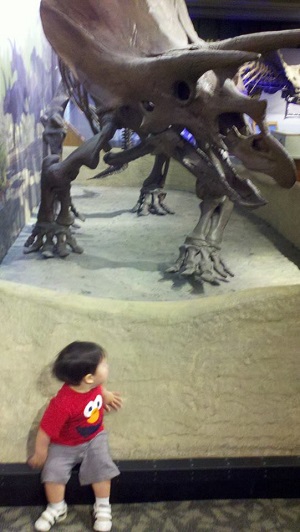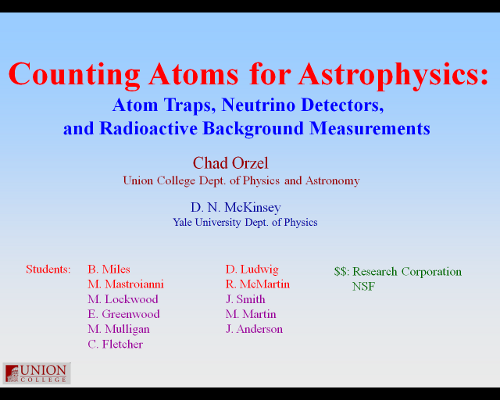Having just returned from a long trip where I gave three talks, one of the first things I saw when I started following social media closely again was this post on how to do better presentations. The advice is the usual stuff– more images, less text, don’t read your slides, and for God’s sake, rehearse […]
Category: Meetings
Nordita Workshop for Science Writers: Wrap-Up
I didn’t write a summary of the third day of “Quantum Boot Camp” to go with my Day One and Day Two summaries for a simple reason: I would’ve needed to do that on Saturday, and I spent Saturday in transit back to the US. More than that, though, it was harder to summarize than […]
Nordita Workshop for Science Writers, Day Two
The second day of the “Quantum Boot Camp” was much lighter on talks. The only speaker was Ray Laflamme from the Institute for Quantum Computing in Waterloo, who gave a nice introduction to quantum technologies. While he did spend a bit of time at the start going through Shor’s algorithm for factoring numbers (following up […]
Nordita Workshop for Science Writers, aka “Quantum Boot Camp”
Since this part of the trip is actually work-like, I might as well dust off the blog and post some actual physics content. Not coincidentally, this also provides a way to put off fretting about my talk tomorrow… I’m at the Nordita Workshop for Science Writers on quantum theory, which a couple of the attending […]

More Kids and Conferences
The kids and conferences issue, discussed here a while ago has continued to spark discussion, with a Tenure She Wrote piece on how to increase gender diversity among conference speakers and a Physics Focus blog post on a mother who wound up taking her toddler to a meeting. There are some good points in both, […]

The Quirks of Scientific Public Speaking
As previously noted, I spent most of last week at the 2013 DAMOP meeting, where I listened to a whole bunch of talks. At some point, I was listening to a talk, and said “I bet this guy hasn’t given a lot of these before.” What was the give-away? The fact that he almost never […]
This Is All For Science
Today’s Links Dump came late because I was at the meeting of the APS’s Committee on Informing the Public. We apologize for the inconvenience, but I was too busy acquiring this critically important scientific data: What is that, you ask? It’s this:
What’s So Interesting About “Traditional” AMO Physics?
The fourth content area from my whirlwind overview of DAMOP is “traditional” AMO physics. This was the hardest to talk about in my talk, because I know it the least well, but ironically, that makes it really easy to write up here, because I don’t have much to say about it. Where the other areas […]
Physics Android Apps?
I’m going to be at an amusement park tomorrow, for a meeting of the APS’s Committee on Informing the Public, which oversees the APS outreach program. Why an amusement park? Because a common outreach-type program is to do a Physics Day at an amusement park and talk about the physics of roller coasters and the […]
What’s So Interesting About Ultracold Matter?
The first of the five categories of active research at DAMOP that I described in yesterday’s post is “Ultracold Matter.” The starting point for this category of research is laser cooling to get a gas of atoms down to microkelvin temperatures (that is, a few millionths of a degree above absolute zero. Evaporative cooling can […]